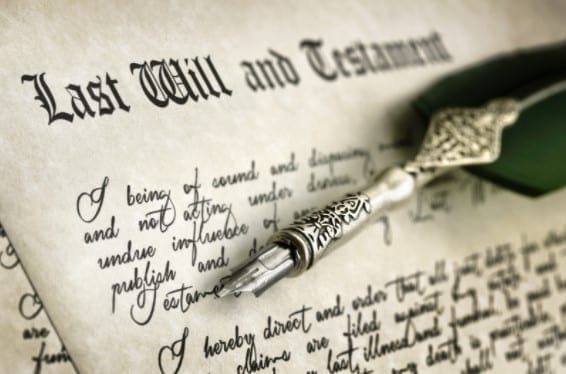 Have you heard of the “READING OF THE WILL”? Of course, you have! because it has been a scene in many TV shows and movies. After someone dies, the lawyer hosts a meeting in his (usually “his” because, well, you know, but that’s a topic for another time…) office.
Have you heard of the “READING OF THE WILL”? Of course, you have! because it has been a scene in many TV shows and movies. After someone dies, the lawyer hosts a meeting in his (usually “his” because, well, you know, but that’s a topic for another time…) office.
Everyone who had a relationship with the deceased is in attendance, even the mistress and the degenerate nephew. Does this happen in real life? NO!!!! At least not in Connecticut.
FALSE FACTS FRIDAY Issue 10: When A Loved One Dies, I Will Be Invited to a Reading of the Will
I consider myself an intelligent person with a good education, but I do not spend my days working in a hospital. So admittedly, what I “know” about hospitals, I learned by watching ER and Grey’s Anatomy.
I’m sure my friends who do work in hospitals will tell me most of what we see on those shows is far from the truth.
it is also not surprising that people who do not practice probate law believe what they have seen on television or in movies.
Related Post: What Is An Ethical Will?
Is The “Reading of the Will” a Real Thing?
Short answer – No. What actually happens is someone close to the deceased finds the Will and reads it alone. Maybe they shows it to other family members; maybe not.
The person who is named as the proposed executor in the Will then schedules an appointment with a probate attorney to begin the process (no, having a Will does not mean you can avoid Probate).
That attorney will ask for information about the deceased’s assets because sometimes both full probate and the appointment of the executor are not necessary.
If it is necessary, the lawyer will prepare a Petition for the proposed executor to sign, and then the lawyer will file the paperwork, along with the original Will, with the appropriate Probate Court.
In Connecticut, the attorney is also obligated to send the Petition and a copy of the Will to all beneficiaries named in the Will and all heirs of the decedent, even if they are not named in the Will. The determination of who is an “heir” depends on the deceased’s family relations.
Related Post: What To Include In A Will – A Simple Checklist
Who Gets a Copy of The Will?
In most cases, the spouse and children are heirs. If the deceased was not married and had no children, then parents, followed by siblings step into the role of the deceased’s heirs.
These parties are called “interested parties”. This is when all interested parties receive a copy of the Will, if they had not already…in their mailbox, to be read in the privacy of their own home. I guess that’s just too anticlimactic for Hollywood.
Can Anyone Have Access To The Will?
Even though there is no official get-together for the reading of the Will, a Will does become a public court record when it’s admitted to probate, regardless of who’s entitled to receive a copy. For a small fee, anyone can go to the appropriate courthouse and ask to see the will or write a letter to the probate court to request a copy by mail or fax.
Under certain circumstances, the beneficiaries of a will or the executor can ask the probate judge to “seal” a will and probate records. This prevents the public from reading the will and all other related court documents.
So keep enjoying your TV shows and movies, but please do not be offended or suspicious if you do not receive an invitation to the lawyer’s office for the reading of the Will after a loved one dies.
P.S. You may have picked up on my use of the term “proposed executor” above. Stay tuned for another – FALSE FACTS FRIDAY regarding this…coming soon on a Friday near you.
Related Post: The Connecticut Probate Process For Dummies
Disclaimer: The information provided in this article does not, and is not intended to, constitute legal advice and is for general informational purposes only.
Let Us Know How We Can Help!
Please fill in your contact information and a brief message about what you need help with. A consultation will need to be scheduled in order to provide legal guidance.
Joan Reed Wilson Esq. – Managing Partner
Practices in the areas of estate planning, elder law, Medicaid planning, conservatorships, probate and trust administration, and real estate. Admitted to practice in the States of Connecticut and California, she is the former President of the CT Chapter of the National Academy of Elder Law Attorneys (NAELA), an active member of the Elder Law Section of the Connecticut Bar Association, accredited with the PLAN of CT for Pooled Trusts, with the Veteran’s Administration to assist clients with obtaining Aid & Attendance benefits for long-term care needs and with the Agency on Aging’s CareLink Network.







